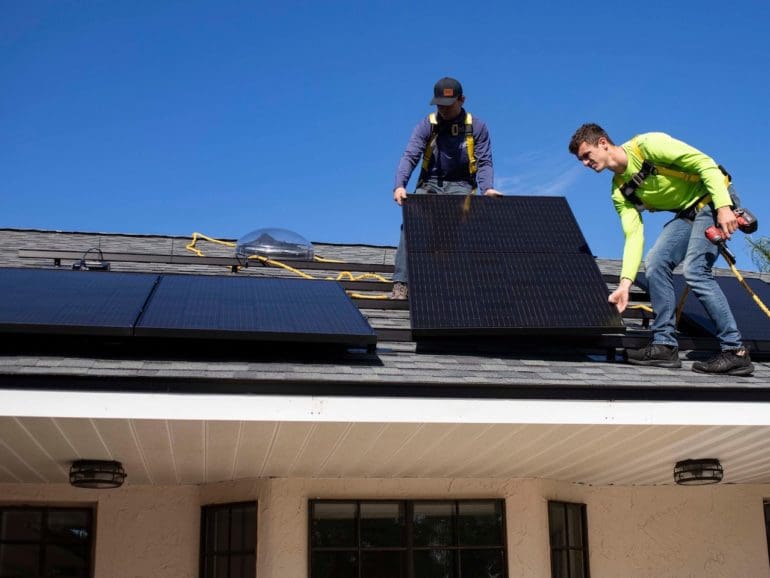Within a context where ESG is hotly debated, solar loans seem to sit on their own island.
“We’ve seen it to be really competitive for a long time,” said Matt Myers, CEO of Goal Solutions. “It was on many banks and credit unions because it’s very high credit quality, which means very low volatility.”
“That’s something that, generally speaking, a lot of investors have found really attractive over time. And that’s just brought more and more investors into the space over the last few years.”
The rising rates of energy prices and the introduction of the Inflation Reduction Act have caused the sector to see a boom of interest.
RELATED: Greenpenny: Financing the ‘Renewable Revolution’
‘Immune’ asset class
Consumers, spooked by the increased gas bills, have turned to solar energy through necessity.
“I think it’s not a decision people make for environmental reasons. It’s a decision people are making for purely economic reasons.”
With installment fees starting at around $25,000, many turn to loans. The US residential solar loan market has continued to grow at the end of 2022, reportedly reaching a rate of 37%.
Myers explained that the sector is interesting and has shown significant resistance to delinquencies.
Lenders have a lien on the panels; if you don’t pay, they can shut the panels off. If the panels get shut off, your utility starts filling up again,” he said. “Then your utility bill comes back, which will be some percentage higher than your solar bill.”

“It’s an incentive customers have to pay on their solar loan.”
He said that, unlike other loans, this direct incentive has resulted in a comparatively low rise in delinquencies as economic conditions have grown more challenging.
“There’s an actual positive economic benefit for paying that bills, which is very different from any other asset class,” he said.
“From an investor perspective, it tends to be more immune. If you were to look domestically at the consumer loan space, we’ve seen heavy increases in delinquency rates across most asset classes, especially those exposed to subprime.”
“In residential solar, the delinquency increases; while they have been happening, they have been much more muted. It’s because an actual intrinsic value is attached to the asset cells.”
Controversy with ESG
While ESG has been met with controversy for some time, it seems to be coming to a head.
In December, several individuals making up the Consumers Research group joined 13 state attorneys general calling for an investigation of the asset manager, Vanguard. The complaint? That Vanguard was “meddling with [the] energy industry to achieve progressive political goals at the expense of market efficiency.”
Vanguard responded by exiting the Net Zero Asset Managers Alliance.
Without going too much into the politics of this uprising, it has been reported that the group, among others, is now encouraged to go against what they perceive to be a “woke” ESG agenda. It has been claimed that this agenda could be damaging the efficiency of Wall Street.
Solar loans, while on the surface may be rolled into the “ESG” theme, could disprove the conviction that environmental investment means a trade-off in returns.
“Residential solar is an interesting intersection of positive economic benefits for consumers and things that improve the world. Often people think of ESG investing and anything that has a positive climate effect, and they think it’s probably not going to have a good return attached to it.”
“Solar is in a really interesting spot where consumers benefit, investors benefit, the environment benefits, and it is increasing. As the industry continues to grow and expand, I think you will see a lot of opportunities for investors inside it. It’s got some unique nuances to it.”


